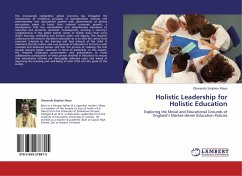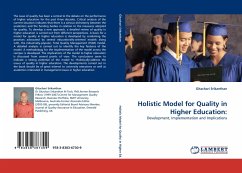The increasingly competitive global economy has instigated the introduction of neoliberal principles of managerialism, markets and performativity into educational systems with governments of diverse persuasions eager to boost their national economic growth; a development that has commodified and subordinated education to industrial and economic demands. Consequently, securing a country s competiveness in the global market seems to matter more than every child s learning, well-being and intrinsic rights and dignity. This research underscores the need to transform education so as to shift the centre from economic interests to the learning and best interest of the child. It maintains that the nature and core purpose of education is to form a well-rounded and balanced person and that the process of realising this feat equally requires holistic approach in terms of leadership. In this respect, the research challenges governments and policymakers to invite collaborative participation of every person involved in education to ensure that educational reforms are thoroughly reflected upon and aimed at improving the learning and well-being of each child and the good of the society.
Bitte wählen Sie Ihr Anliegen aus.
Rechnungen
Retourenschein anfordern
Bestellstatus
Storno








